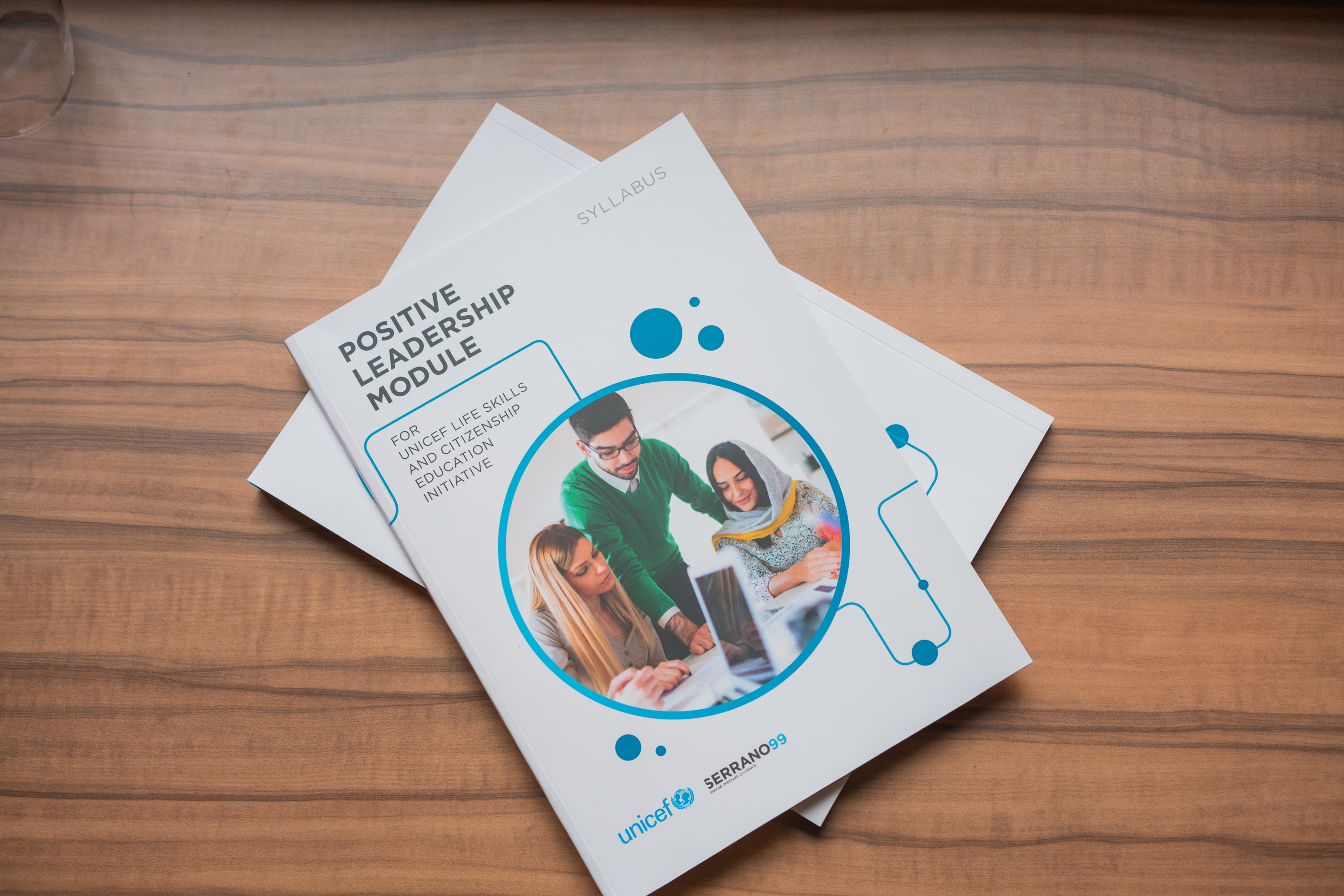By Declan Noone
It is becoming increasingly obvious that leaders can no longer adhere to the old model of individual, stand-alone masters of all they survey. The complexity of the challenges leaders face, as well as organisational structures and systems, necessitate a new approach to leading new product developments or change: co-creation.
In my recent article for Positive and Mindful Leadermagazine, titled ‘Diffused Leadership’, I make the case for diffusing leadership responsibilities throughout the organisation. It is about empowering others, as co-producers, to actively engage in creating the solutions to the challenges your team and/or organisation face, i.e. solving problems through co-creation.
This was evidenced in practice recently as Serrano 99 completed a project with UNICEF Lebanon, developing a Positive Leadership Module for the UNICEF Life Skills and Citizenship Education Initiative which will be delivered to young people across Lebanese, Syrian and Palestinian communities. This provided a wonderful opportunity to engage with local partners (co-producers) in co-creating a training module that is fit for purpose; over 10 months, we designed and developed the programme with the co-producers to meet their needs and the reality of their circumstances. Read more about this project.

UNICEF Train the Trainers
The challenges we faced as a collective were unique and interrelated: a variety of entry points for youth into a vast array of programmes available to them; literacy levels; age; gender; ethnicity; socio-economic conditions; culture; and life experiences. We, in Serrano 99, were cognisant of the need to develop a process that engaged with local partners to draw on their knowledge, experience and enthusiasm, in order to identify solutions to those challenges.
For us, this was not something new, because as an approach it reflects how we work with all our partners and clients, as it represents our belief in the essence of positive leadership i.e. imagining challenges and solutions, empowering others to bring their passion, knowledge and experience to the table and, co-creating a solution that works for you, your team, your organisation, your context. For our new co-producers, this was a new development, one which they enthusiastically seized with both hands. We were not only asking them for their insights, but actively seeking for them to engage, share knowledge and have a direct impact on the outcome.
A co-creation process has a number of ingredients:
Purpose: Clearly defined and communicated between leaders and co-producers. Clarity as to what is being asked of them, what resources are available, and indeed the timeline. Most importantly is providing the ‘Why’; Why are we doing this? Why have they been asked to participate? etc.
Framework: Uniquely designed to the specific context but with some important stages. This should map the project journey, outlining the extent of face-to-face engagements and workshops, objectives for each stage, and a clear distinction between designing, testing and delivery.
Trust: In order to ensure co-producers feel they are actively part of the team and the process, building trust early is essential. The leader’s roll is to create a positive environment where co-producers feel valued, recognised and safe. Demonstrate trust by affording them the autonomy to deliver on what they say they will deliver on. Publicly acknowledge, beyond the team, the achievements of the individual and the collective including the added value they bring to the process.
Positive Communication: Encourage an internal communications approach that embodies open mindedness; respect; empathy; humour; active listening; and acknowledgement of the attributes each individual brings to the team. Doing so strengthens team bonds, creates a sense of connection, and helps reframe the inevitable hurdles you will face as challenges that can be overcome.
Changing Mindset: There are two sides to this coin; (1) the leader must be willing to let go and empower his/her co-producers, trusting in them, their abilities and their knowledge; and (2) co-producers must be willing to let go of any fixed mindset that the leader will provide the answers and specific directions, they must embrace the autonomy given to demonstrate skills, and as a consequence take ownership of the responsibility and accountability that comes with doing so.
Benefits
Embracing and adopting a co-creation approach as a positive leader, has in our experience, resulted in:
- The development of more creative, robust and sustainable solutions.
- Increased levels of engagement by co-producers.
- Improved levels of ownership at the local level.
- The development of strong personal and team bonds.
- Improved personal and team resilience.
- The creation of enthusiastic and proactive advocates and allies within the organisation.
Challenges
We had a diversity of: opinions; genders; individual organisational needs; expectations; and experiences. However, positive leadership is not just about ‘Knowing’what needs to be done, but also ‘Doing’and ‘Being’i.e. it’s not just a matter of talking the talk, you need to walk the ‘Positive Leader Walk’. Consequently, we individually and collectively trusted the process and let the results speak for themselves. For this project, we developed a unique positive leadership module for youth which will be rolled out across multiple programmes by 29 local partners from July 2018. Furthermore, our co-producers are passionate advocates within their own organisation for the positive leadership module, which is fit for purpose for the unique challenges they face in an emergency environment.


It was really a new invaluable experience to co-create this module with you. We frankly see this module as our baby who we raised by our hands & truly care for. You changed our mental model on how curricula are designed 🙂
Thank you Declan & Armin
Mohannad – UNRWA